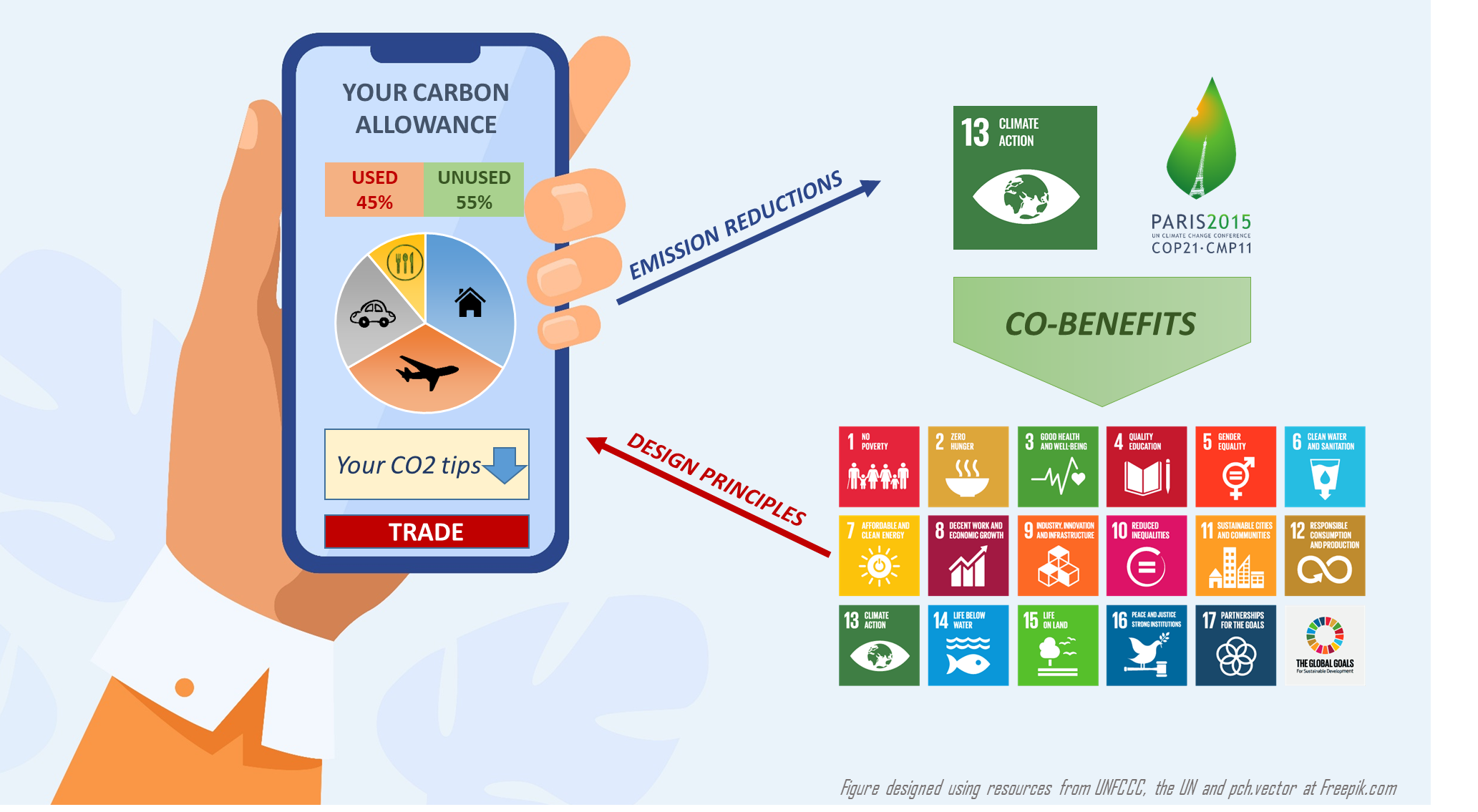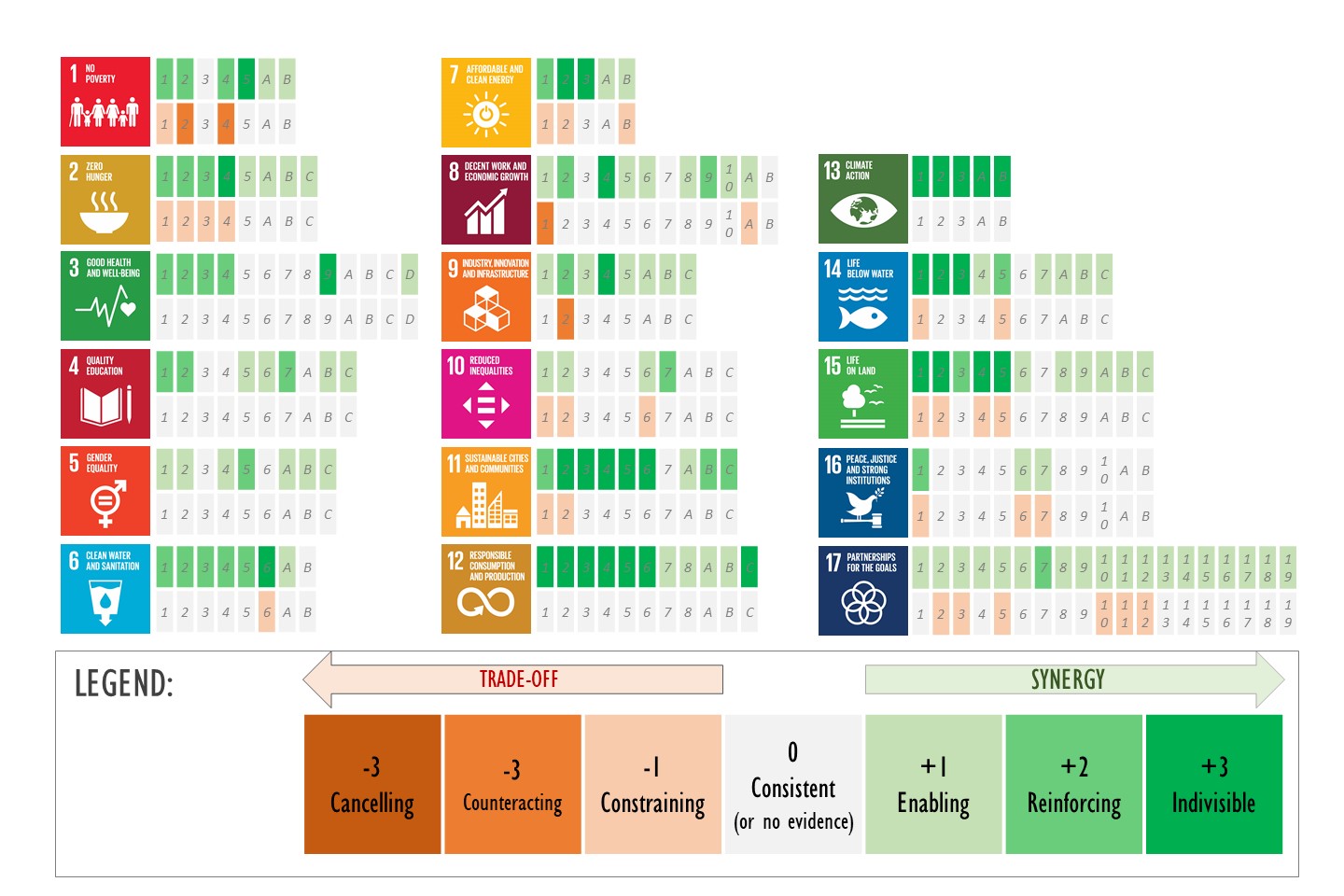Is the time ripe for personal carbon allowances?
Published in Sustainability

The recently released IPCC 6th Assesment Report leaves no room for doubt: to stay on a well below 2 °C global warming path we will need to reach global net-zero emissions by 2050. As the same time, with hardly any week passing without news on climate crisis-related extreme weather events, currently implemented climate policies across the world are not nearly on track to achieve the Paris climate agreement. While achieving the climate goals is within our reach, the need of change is unprecedented, and if countries are serious regarding reaching net-zero emissions, innovative policy options may be needed to address the escalating crisis. In this context, while current climate policy mostly addresses emissions targeting large carbon emitters, such as power plants, certain industrial activities..etc, little incentive (and knowledge) is available for most individuals to live a low-carbon lifestyle.
With this in mind, and starting with a shared intuition, we reflected again on an idea that just around a decade ago was defined ´ahead of its time´. Our thinking is detailed in the resulting Perspective in Nature Sustainability where we argue that the time may now be ripe for Personal Carbon Allowances (PCAs).
This policy aims to link personal action with global carbon reduction goals. A PCA scheme would entail all adults receiving an equal, tradable carbon allowance that reduces over time in line with national targets. PCAs could be designed to encompass only certain emissions (e.g. travel, or the household use of fossil methane gas for heating) or be more comprehensive and cover the whole economy (e.g. including all household direct and indirect emissions such as food and other consumption-related emissions). Research shows how PCAs can deliver carbon emissions-related behavioral change via various mechanisms, thus reducing emissions. Arguably, PCAs could help enable shared responsibility, at all levels of society, since the threat of global warming is universal.
Figure 1 – Mock up of a possible PCAs concept – and its connection with climate and sustainable development goals. 
We believe that PCAs can be considered again as the world in recent years has profoundly changed. Radical changes provided by the Covid-19 crisis, in combination with the need to address worsening climate and biodiversity crises and by the advancements in information and communication technologies (ICT), in particular Artificial Intelligence (AI), could improve the feasibility and attractiveness to policy makers and the public of personal carbon allowances.
Public outcry over climate inaction, best represented by the climate strikes across the world, together with the increasing number of countries and regions pledging to have net-zero carbon emissions by 2050 or 2060, may increased public and political interest for PCAs.
Furthermore, the Covid-19 crisis brings many lessons learned for the future adoption of PCAs. The Covid-19 crisis, has risen awareness on the interconnectedness and effects of individuals' actions. During the Covid-19 pandemic, schemes for individual accountability and responsibility that were unthinkable only one year before have been adopted by millions of people. Arguably, the increased awareness of individual responsibilities on today´s global sustainable development issues, together with lessons learned on Covid-19 tracking, could pave the way for the adoption of PCA schemes for climate action.
Finally, recent advancements in AI for sustainable development promise to shrink implementation costs and logistical challenges for PCAs. For instance, while in the 2000s carbon allowances were expected to be managed by a card, in the 2020s high ownership would make smartphones the preferred option for accounting and trading. AI breakthroughs will soon allow the low-cost development of new personalized apps for effortlessly accounting for PCAs and for trading personal emissions.
However, PCAs would need to be carefully designed for adoption anywhere in the world. In our work we assess how PCAs could be harmonized with all Sustainable Development Goals (SDGs) finding important design principles for the way forward. Among others, PCAs must be designed in a way that will not negatively affect poor and vulnerable populations therefore potentially affecting SDG1 on No Poverty and SDG10 on Reduced Inequality among others. The emissions accounted with PCAs will also influence which SDGs outcomes are affected. For instance, a PCA policy also accounting food- and consumption- related emissions may have (positive and negative) repercussions on SDG2 on Zero Hunger and SDG 9 on Industry, Innovation and Infrastructure.
Figure 1 – How climate policy may affect positively (green) or negatively (orange) the achievement of the SDGs targets, Source: Fuso Nerini et al, Nature Sustainability, 2019

Furthermore, PCAs can help delivering green growth, with opportunities for high-quality employment. PCAs would favor the adoption of low-carbon lifestyles, and thus benefit low carbon infrastructure and innovation, opening up room for new businesses and technologies to support decreasing personal emissions. Businesses offering low- and zero-carbon options in e.g. transport, heating and food sector could receive a strong push, both as consumer demand increases, and by having additional carbon-related revenues. New companies could be created for retrofitting energy unefficient homes in exchange of carbon credits to sell to the personal carbon market. Also, PCAs may open new market opportunities for trading of personal carbon emissions. For instance, new tech companies could be created to connect those with more carbon allowances than they need and those in need of allowances. Also, such a strong political signal and new demands for low-carbon lifestyles may push the creation of new creative enterprises that reduce emissions in ways we cannot even envisage today.
At the same time, PCAs may reduce growth in high-carbon sectors, therefore any PCAs design should assess the potential negative impacts on high-carbon sectors, and evaluate support schemes for affected people and regions.
Adopting PCAs at scale in any given region or country will be a challenging research and policy task. It is unlikely that the same PCAs design would work everywhere –or that PCAs are a suitable policy for all regions or countries. Implementing PCAs will need courageous ´first mover´ countries. So, which regions should look into PCAs to support their net-zero carbon pledges? We believe that climate-ambitious, technology-advanced countries with high trust in the government would potentially have more success in implementing just and equality-based PCAs.
With the world not on track to meet the objectives of the Paris agreement using current policy tools, PCAs might offer a new approach. While a PCA scheme would not be easy to design or implement, given the need for very ambitious reduction targets, climate-ambitious countries should ask: if not PCAs, what other scheme should be put in place to affect high-carbon behaviours in support of the objective of net-zero carbon emissions?
Follow the Topic
-
Nature Sustainability

This journal publishes significant original research from a broad range of natural, social and engineering fields about sustainability, its policy dimensions and possible solutions.
What are SDG Topics?
An introduction to Sustainable Development Goals (SDGs) Topics and their role in highlighting sustainable development research.
Continue reading announcement


Please sign in or register for FREE
If you are a registered user on Research Communities by Springer Nature, please sign in